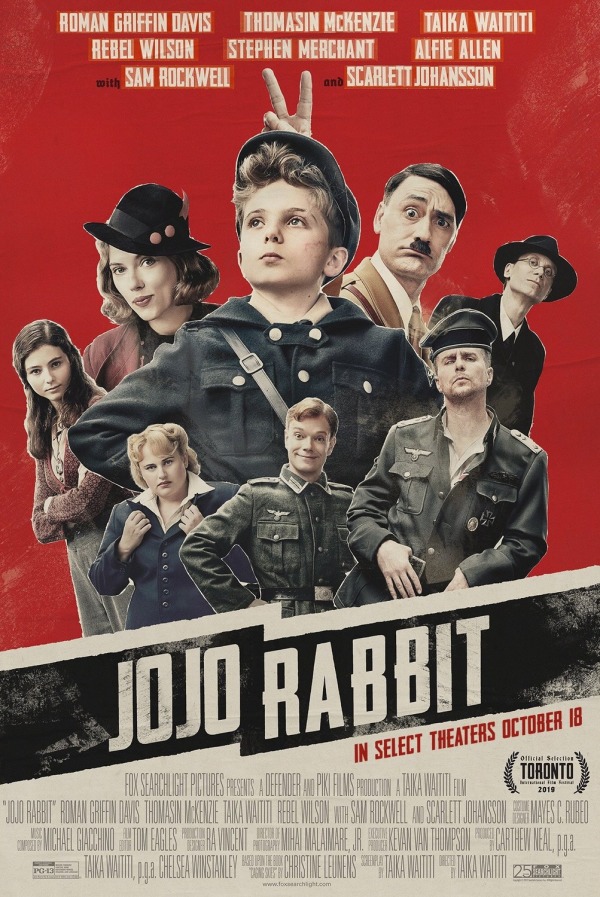JOJO RABBIT (directed by Taika Waititi, 108 minutes, USA, 2019)
![]() BY DAN TABOR Jojo Rabbit is the answer to the unasked question: what if Wes Anderson decided to make a whimsical, black comedic satire about Nazis? Based on Christine Leunens’s book Caging Skies and set at the tail end of World War II, Jojo Rabbit is the story of 10 year-old Jojo (Roman Griffin Davis), who lives in Germany with his single mother (Scarlett Johansson) and his imaginary best friend, a cartoonish version of Adolph Hitler played by the film’s director Taika Waititi (Thor Ragnarok, Hunt for the Wilderpeople).
BY DAN TABOR Jojo Rabbit is the answer to the unasked question: what if Wes Anderson decided to make a whimsical, black comedic satire about Nazis? Based on Christine Leunens’s book Caging Skies and set at the tail end of World War II, Jojo Rabbit is the story of 10 year-old Jojo (Roman Griffin Davis), who lives in Germany with his single mother (Scarlett Johansson) and his imaginary best friend, a cartoonish version of Adolph Hitler played by the film’s director Taika Waititi (Thor Ragnarok, Hunt for the Wilderpeople).
Jojo aspires to be the best Nazi he can be and after a mishap with a grenade, Jojo is discharged from the Hitler Youth and passes his time working for the one-eyed Nazi Captain Klenzendorf (Sam Rockwell), who tasks the young Jojo with putting up propaganda and collecting metal to do his part for the fatherland. Jojo’s blinkered worldview is shattered, however, when he discovers his mother has been hiding a young Jewish girl named Elsa (Thomasin McKenzie) in their attic.
Faced with the awful choice of harboring the mortal enemy of the Nazi party or turning the girl over to the SS and risk losing his mother, Jojo makes a pact with the Elsa. She will tell him the “secrets” of the Jewish people, which he will record for the Nazis in exchange for his silence. As his friendship with Elsa turns romantic, Jojo comes to realize he is fighting for the wrong team. Waititi masterfully intermixes this wide-eyed coming of age tale with the grim realities of war. On paper, using Adolf Hitler as a comedic foil to tell a tale of tolerance is a fool’s errand, but somehow Waititi pulls it off in what is hands-down one of the most complex and strangely heartwarming films you will witness this year.

